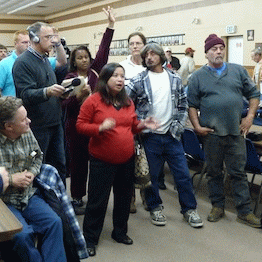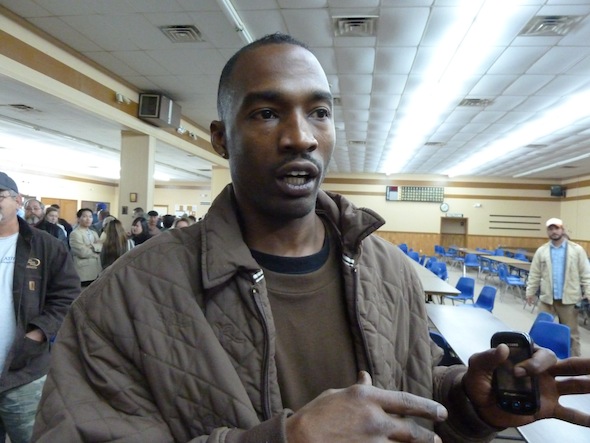In two weeks of public meetings across the Gulf Coast, Kenneth Feinberg is hearing pointed criticism of the claims process he is leading. Residents point to inconsistency and lack of transparency as major problems.
In three of those town hall meetings last week in Louisiana and Mississippi, residents called for his resignation, suggested changes to the process, expressed anger over their denied claims, and even brought along massive binders and manila folders filled with their financial records, some of which had been denied for "insufficient documentation."
Throughout the meetings, the anger and growing desperation in these coastal communities was never far below the surface.
Anger rises in Bay St. LouisIn a packed American Legion Post in Bay St. Louis, Mississippi, a father described having his claim denied, while his son received a payment. They worked together on the same shrimp boat.
People spoke again and again of glaring inconsistencies like this in their communities, workplaces, and families, as some get fat settlement checks and others get nothing.
Amy Sullivan, who works at the Hard Rock Casino in Biloxi,
Mississippi, says some of her co-workers received payments but she was
denied. "Why is it so inconsistent? You can call the 800 number, hang
up, call back and get a completely different answer."
Feinberg says he's improving the process by hiring local
representatives to supplant the 800 number, improving the methodology
for determining how to pay claims, and making that methodology
transparent. He says the improved methodology will be posted online
within a month.
But many see the fact that the methodology is not yet ready or
transparent as a problem. They say they hoped to have more concrete
answers during these meetings, but it's more of the same.
Ray McGill, a 35 year old from Picayune, Mississippi, says things were going well for him before the oil disaster. He had just opened up a restaurant, Ray's Shrimp Shack, in February 2010. "It was doing really good. I kept a packed house. I offered gumbo; I offered Dungeness crab, blue crab."
Now, Ray's Shrimp Shack is out of business. Like so many at this
meeting he is there to ask about why his claim was so low, "when I know
that all of my documentation is right." He received just $6,200 to
cover the losses his seafood restaurant, shrimp boat, and trucking
business have sustained since the BP disaster began. "I'm just trying
to hang on, pay my bills anyway I can. I'm trying to cut hair on the
side, barbering" It's hard. The economy's bad, and I just don't know
where else to turn" We are all hurting."
At a late afternoon meeting in the community center on Grand Isle, Louisiana, resident Karen Hopkins gave Mr. Feinberg his walking papers, a petition calling for his resignation signed by about 400 people. She says even more would have signed, but were afraid of retaliation from Feinberg, who holds the economic future of so many Gulf residents in his hands.
The petition calls into question the legality of some of Feinberg's policies, like requiring that people sign away their ability to sue when they accept a final payment. It also criticizes the way Feinberg's operation, the Gulf Coast Claims Facility, has handled health claims. Cherri Foytlin, who co-founded Gulf Change with Hopkins and others, says only about 50 out of 400 medical claims have been approved.
Hopkins says that the problem lies not just with a massive compensation process that is bound to face challenges, but with Feinberg himself; "[He] is not doing a good job, because he is not of us. He doesn't have the heart that it takes to administer that fund fairly..."
Solidarity across race in LafitteA forty minute drive south of New Orleans, in Lafitte, Louisiana
fishermen in the standing room only crowd wore orange ribbons around
their upper arms, and stickers identifying their place in the seafood
industry: "I shrimp therefore I am," "I shuck therefore I am," "I crab
therefore I am," in Vietnamese and English.
Daniel Nguyen explains
that the ribbons "show solidarity amongst race, amongst different
industries." Nguyen works for the Mary Queen of Vietnam Community Development Corporation,
which organized translation and a charter bus to make sure the
Vietnamese community in and around Orleans Parish could participate.
(Note: You can view every article as one long page if you sign up as an Advocate Member, or higher).








